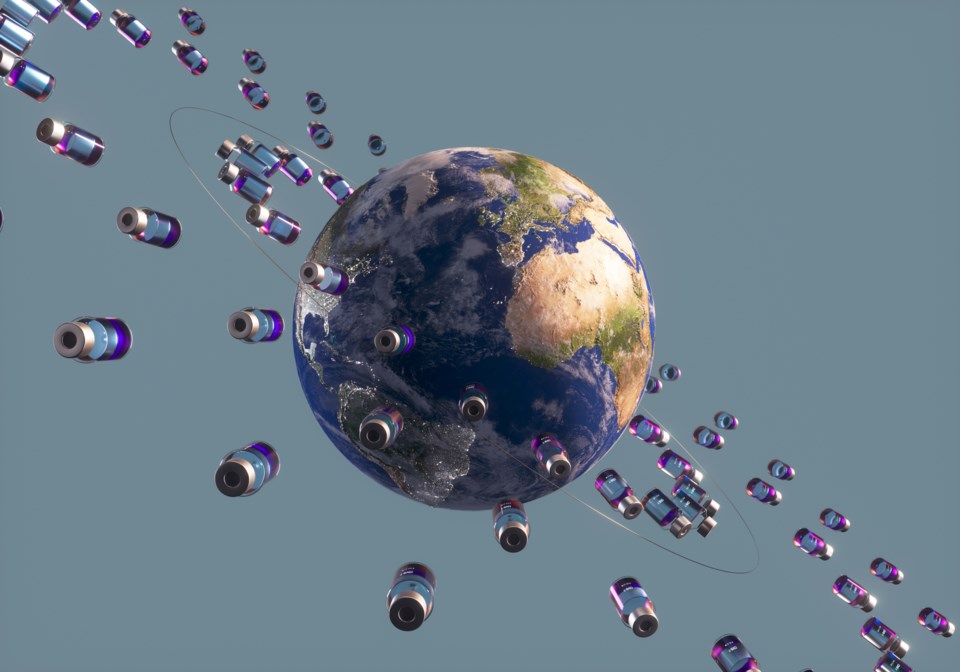By all accounts, it was one of the best opening days for years, and while the joy of it may have been dimmed by rain-to-the-peak in the early part of this week, it looks like alpine snow is coming back.
For most of us, this time of year really feels like our new year. It’s the start of the winter season and our economic, social and cultural year begins now, not in January. We look out from opening day weekend and budget and plan from there.
In times past, it had all the excitement of a new year, but as the pandemic continues and climate change wreaks havoc on our region and across B.C. it’s getting harder and harder to harbour that Whistler vibe.
Opening day weekend brought with it gas rationing and a plea from government to only travel if essential, this time to reserve fuel for supply-chain needs thanks to the destruction recent atmospheric-river events have wreaked on our main highways. That kept crowds down on the mountain and in the village.
Now this week we are learning that a new variant of COVID-19, Omicron, has already made it into Canada—in Ontario and B.C. via Nigeria. Nations across the globe, including Canada, are slamming borders closed to Omicron patient-zero nations, mostly in the African continent. Foreign nationals who visited any of several nations in southern Africa within 14 days of their planned arrival in Canada are no longer to be allowed entry, said a release from Canada’s federal public health agency.
Canadians returning from these countries will have to quarantine for 14 days and be subject to enhanced screening and testing measures, the release said.
It’s human nature to want to isolate when threatened, but closing our borders did little to prevent infection from the original coronavirus, or the aggressive Delta variant. Maybe all this does is give our healthcare system breathing room to treat the virus victims.
Officials have warned that many of the Omicron mutations could lead to increased antibody resistance and transmissibility, which could limit the effectiveness of existing COVID-19 vaccines.
Scientists are studying this latest variant to get an idea of how deadly it is. For now it is hoped that being fully vaccinated will keep those who get it out of hospital.
It is a stark reminder of the importance of getting vaccinated right now—one that was shared in plain language recently by Germany’s health minister. “Some would say this is cynical but probably by the end of this winter, pretty much everyone in Germany will be vaccinated, recovered or dead ... That’s the reality,” Jens Spahn told a press conference in Berlin this week.
It’s easy for us here in Whistler and B.C. and Canada to feel a bit smug about our survival if/when we get COVID-19 with our very high vaccine rates.
But we need to consider that these new variants are going to just keep happening on into the future if the high- and middle-income nations don’t take action to make sure everyone in the world has access to a coronavirus vaccine.
Right now about 43 per cent of the world is vaccinated. The World Health Organization tells us that needs to get to about 70 per cent in order to slow the virus down and help prevent mutations of it.
Canada, for its part, has destroyed more than a million doses of vaccine already (but let’s also understand that South Sudan, for example, let about 59,000 doses of vaccine expire before they could be used because they don’t have the infrastructure to get them into people’s arms).
The New York Times recently reported that the International Monetary Fund calculates that an urgent US$50 billion investment primarily by high-income countries to vaccinate people in low-income countries would yield an astonishing US$9 trillion in additional economic growth by 2025, by controlling the pandemic earlier.
But it is not an economic argument, really (though some can only be motivated by money); it is a moral one.
Said Raywat Deonandan, an epidemiologist and associate professor with the Faculty of Health Sciences at the University of Ottawa: “For this crisis to end, a wartime mindset must be adopted. A worldwide ‘Manhattan Project’ is warranted, one in which a significant share of the world’s industrial capacity is focused on vaccine and respirator production and distribution.
“Anything less threatens to extend the global crisis much longer than it needs to be.”




